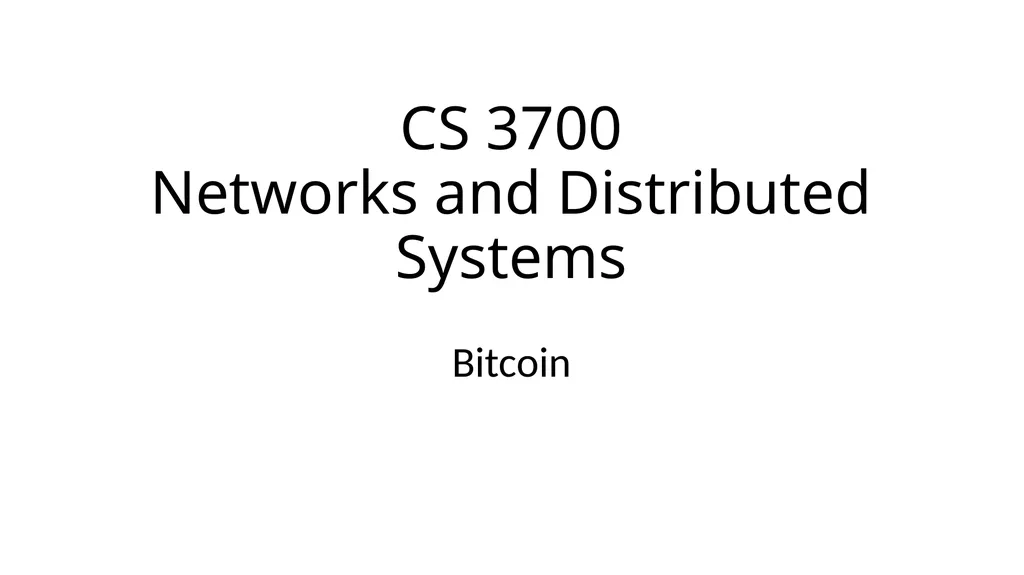
Author : olivia-moreira | Published Date : 2025-05-28
Description: CS 3700 Networks and Distributed Systems Bitcoin Brief History of Currency Towards Decentralized, Online Currency Bitcoin Bitcoin in Practice What is Currency? Medium of exchange May or may not have intrinsic value (e.g. gold) Value isDownload Presentation The PPT/PDF document "" is the property of its rightful owner. Permission is granted to download and print the materials on this website for personal, non-commercial use only, and to display it on your personal computer provided you do not modify the materials and that you retain all copyright notices contained in the materials. By downloading content from our website, you accept the terms of this agreement.
Here is the link to download the presentation.
"CS 3700 Networks and Distributed Systems Bitcoin"The content belongs to its owner. You may download and print it for personal use, without modification, and keep all copyright notices. By downloading, you agree to these terms.













